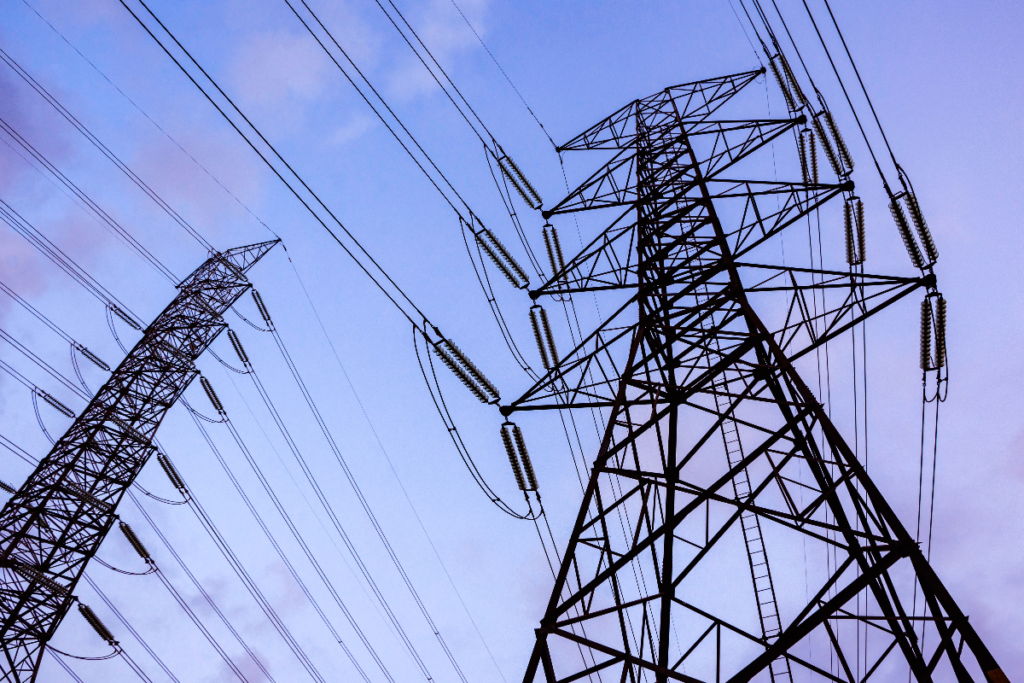Non-Commodity Costs: Why am I charged more than expected?
Check out our LinkedIn for live updates

Pam Knight
Published: 20th September 2023
We know that keeping costs low is a key factor for every business and that this is no different for your business’ energy bills. Your basic rate is just the tip of the iceberg when it comes to your overall bill.
Sometimes a contract can seem a lot cheaper than it is, but this usually doesn’t include non-commodity costs. It’s important that your business is best informed before signing onto your contract.

Expectations vs Reality
Imagine. You’re shopping around for your energy contracts trying to look for the best deal for your business. You’ve received quotes from two different energy brokers: one is offering 23p p/kWh and the other is offering 18p p/kWh. Obviously, your mind goes straight to the cheapest rate you’re offered. You let the other energy broker know that, while you appreciate their offer, you’re choosing their competitor at 18p p/kWh. They warn you to say that it’s probably too good to be true and that there may be hidden charges. But you stick to your guns and choose the cheaper rate.
A month later, you receive your first bill and you’ve been charged your 18p p/kWh rate. But this is on top of a whole heap of additional charges. So, you’re not really paying 18p p/kWh, it’s closer to 30p p/kWh. This is all due to non-commodity costs. Whilst it may have appeared like you were getting a good deal, you’re probably worse off than before.
What are non-commodity costs?
Non-commodity costs, sometimes referred to as ‘pass-through’ charges, are found on business energy bills. These cover the costs your energy supplier and network operator will incur as part of delivering your electricity and gas to your premises. These costs are essentially ‘passed through’ to the end consumer, reflective of the various expenses associated with maintaining and upgrading infrastructure. These non-commodity costs will often fluctuate due to factors such as changes in energy regulations and network maintenance.
Want to know more about Third Party Costs? Click here!
Are non-commodity costs included in my energy bill?
This is all depending on the type of contract you’re signing and who the supplier is. Unfortunately, it’s not as simple as finding out whether your contract is commodity or non-commodity. You’ll need to investigate the exact contract your broker or supplier is offering you. The commodity and non-commodity costs included in your contract will change from supplier to supplier as each will offer a variety of different contracts, each with their own terms. It’s always a good idea to question your broker before signing so you know exactly what to expect when you get your first bill.
Usually, if you’re signing onto a fixed contract, then you could see some non-commodity costs included on your bill. With some suppliers, BUoS, RO, FiT, CfD and Capacity Market are normally included in your fixed contract. TNUoS and DUoS could be included but this will depend on the supplier and could be subject to further changes. Again, every supplier will have different contracts covering different costs so you should always check with your supplier or broker before signing.
If you’re on a ‘commodity only’ contract, your non-commodity costs are not included in the contract. So you should expect additional costs on your bill. With non-commodity costs making up around 50% of your total bill, it’s incredibly important that you’re aware of what is and isn’t included in your bill.


What non-commodity costs should I expect on my bill?
- DUoS – Distribution Use of System Distribution Use of System charges (DUoS) represent the cost of transporting electricity from the national grid to your business premises. These charges vary based on location and the amount of electricity you consume. DUoS charges are often higher during peak demand periods, encouraging businesses to shift their usage to off-peak hours to save on costs. This is often a daily charge too.
- BUoS – Balancing Use of System Balancing Use of System charges (BUoS) cover the cost of maintaining the electricity grid’s balance between supply and demand. These charges are designed to ensure grid stability and are usually calculated based on your business’s half-hourly metering data. The amount you’re charged will depend on the meter you have and the amount of energy your site consumes.
- TNUoS – Transmission Network Use of System Transmission Network Use of System charges (TNUoS) cover the cost of using the transmission network. These charges are location-dependent and are higher for businesses in areas with greater transmission network demand. Similar to the previously mentioned charges, this is also based on the amount of energy your business consumes.
- CFD – Contracts for Difference Contracts for Difference (CfD) charges support renewable energy projects in the UK. These projects work to encourage investment and development in the UK’s renewable energy generation capabilities. Businesses pay a portion of these costs as a levy on their energy bills. This usually amounts to about 0.1p/kWh.
Want to find out more about the Contracts for Difference scheme? Click here!
- FiTs – Feed-in Tariffs Feed-in Tariffs (FiTs) are subsidies paid to small-scale renewable energy generators. While this primarily affects homeowners with solar panels, businesses also contribute to the FiT scheme through their energy bills. This should cost businesses around 0.8p/kWh.
- ROs – Renewables Obligation Renewables Obligation (RO) charges are aimed at promoting renewable energy generation. They came into force in 2002 and works as the main support method for construction of large-scale renewable electricity projects in the UK. Businesses contribute to the RO scheme through their energy bills, which helps fund renewable energy projects and incentivises clean energy production. This would usually come to around 2.7p/kWh.
- AAHEDC – Assistance for Areas with High Electricity Distribution Costs Assistance for Areas with High Electricity Distribution Costs (AAHEDC) can vary and depend on your electricity supplier. This is a charge to subsidise the cost of distributing electricity in sparsely populated areas of the UK. It will usually be charged at around 0.04p/kWh.
- Capacity Market The Capacity Market is a mechanism that ensures there is enough electricity generation capacity to meet demand, especially during peak periods. The scheme works by incentivising electricity generators to make their ‘capacity’ available when there are periods of high demand, ensuring sufficient capacity is always available. The cost of this is determined by an auction ran by the National Grid on behalf of the Government.
What do non-commodity costs mean for your business?
Some brokers will often exclude non-commodity costs when quoting for a customer to make their deals appear cheaper than they really are. We don’t want anyone to get caught out by hidden costs in their contract. That’s why we’ll always make you aware of this before you sign your contract. We pride ourselves on being transparent with our customers about the costs they should expect when they begin partnering with us. When your business sets a price with us, that’s the cost you should expect to receive.
What can you do to make sure you’re best informed before signing your energy contract?
If your business is shopping around for a new energy contract, it’s best to take proactive steps before signing your contract:
- Consult with Energy Experts: Consider working with an energy broker. Our team have the can help you to dissect your energy bills, explain the various components, and identify potential pass-through costs. This will make sure that your business is getting the best deal for your usage.
- Review the Contract Carefully: Thoroughly examine the energy contract and associated terms and conditions. Pay close attention to any clauses related to additional charges, pass-through costs, and how they may change over time. If you’re not sure on any aspects, get in touch with us and we can advise you on the best route.
- Ask for a Cost Breakdown: Request a detailed breakdown of all charges on the proposed energy contract. This breakdown should include not only the base energy rate but also any non-commodity costs, such as DUoS and BUoS charges. Understanding these will help you anticipate potential cost fluctuations and make sure you have an idea of how much you will be billed.
- Seek Comparison Quotes: Our full price comparison service can help make sure your business is only signing the perfect contract for your needs. Every supplier is different, with different terms and conditions. It’s like comparing apples to pears. Our team can compare contracts on a like for like, or apples to apples, basis. This makes sure you’re getting the best deals for what your site needs.
Contact us
Looking for a new energy contract for your business? Our team at Flame Energy specialise in finding your business the best deals for your energy usage. We can even procure green contracts to help your sites work towards your sustainability goals. Get in touch today to learn more about how Flame Energy can support your business.




